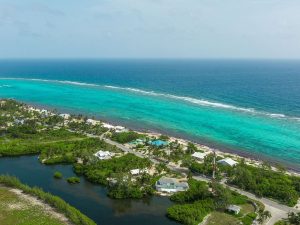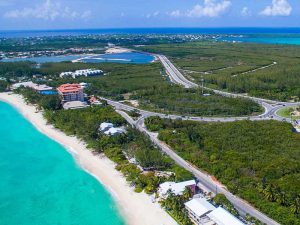Intellectual Property
Generally speaking, intellectual property (IP) refers to creations of the mind, such as inventions, literary and artistic works, creative designs and symbols – and names and images used in commerce. People take their intellectual property, and the protection of it, very seriously and this is never more apparent than when you look at the laws governing IP in the Cayman Islands.
Intellectual Property In The Cayman Islands
In recent years the Cayman Island Government has spent considerable time in revamping the nations intellectual property laws in order to bring them into greater accordance with other, larger nations that have more extensive and protective laws. This was done in order to give individuals involved in creative businesses – and businesses in general – a higher level of protection for their intellectual property. It also has attempted to give people holding IP greater rights. Improving and increasing trademark, copyright and patent legislation – amongst other aspects relating to IP did exactly that.
The Trademarks Law In The Cayman Islands
The trademarks law here in Cayman specifically allows corporations and individuals the right to locally register their company logos and branding mediums. The law also sets out to provide legal protections against trademark infringement and piracy. This has a twofold benefit: it provides incentives for investors both on-island and internationally and also gives these individuals and companies a greater confidence that the intellectual property they trademark here will remain in their hands.
Can’t find the information you are looking for, use the
Cayman Islands GPT
Related Topics
The Copyright Order In The Cayman Islands
Copyright protections were substantially bolstered under the Copyright Order and they were specifically designed to protect original artistic creations. These include local protections for digital content, art, music and film. No matter what medium an artistic creation is created in, if a copyright has been filed for it here it is protected against infringement or piracy. Creative entities and individuals can look to this for support of their works in this jurisdiction and beyond. Moreover, the Design Rights Registration Law gives creative works and their physical appearance that are registered in the United Kingdom the ability to be registered in the Cayman Islands as well.
The Patents Law In The Cayman Islands
Patent laws in Cayman operate very similarly to the Copyright Order in that if an entity has a patent in the United Kingdom individuals can extend those types of protections/rights to the Cayman Islands. There also exists a free standing type of system where patents would not need to registered back in the United Kingdom before being registered on-island.
Intellectual Property In The Post COVID World
It has been widely reported that the number of intellectual property filing requests has dramatically decreased since the onset of the pandemic. That however, is not the case at all and going back roughly two years there has actually been an increase in the amount of patents and trademark filings in Latin America as well as in the Caribbean. Industries such as tech, big pharma and consumer goods are producing new products and trademarking them now more than ever. This trend should hopefully continue as the world continues to reopen and let COVID procedures and restrictions fall away and expire. Firms are also taking more creative steps to ensure IP registrations can continue in the new era of less brick and mortar, more remote work centered business models. For example, in the Cayman Islands staff continue to process new applications remotely and IP filings can be done online via email.
Strengthening IP rights is good for the Cayman Islands business world on a macro level. Strong IP laws drive innovation and secure creative people’s new designs and invention. As we see an ever changing, global corporate landscape and the increasing volatility in supply chains we will see individuals and corporations increase their use of IP rights and it is the hope that governments facilitate these protections. The use of IP rights today could not have been envisioned when they first were created. And that is a good thing for both private and societal stakeholders. The overarching goal is to use intellectual property to foster innovation and, in general, create economic growth and social prosperity.






